Processing Of Municipal Solid Wastes
Eco Pro Environmental Services is leading the Consultancy organisation in Municipal Solid Waste (MSW) Processing and Recycling. Our experienced design team work to customize MSW processing system to suit your needs. Every community has its own unique material mix, and our engineers will the best possible solution to recover and process valuable Waste. Our technology is field-proven to divert waste from entering landfills. Our MSW processing and recycling systems are used in combination to recover valuable commodities, divert waste from landfills. Governments and Urban Local Bodies across the globe are facing significant environmental challenges due to the increasing quantum of waste generation. Eco Pro focuses on providing holistic and sustainable solutions to managing solid waste at every stage - generation, handling, transport, monitoring and treatment. Municipal authorities shall adopt suitable technology or combination of such technologies to make use of wastes to minimize burden on landfill. Following criteria shall be adopted, namely:
- The biodegradable wastes shall be processed by composting, vermicomposting, anaerobic digestion or any other appropriate biological processing for stabilization of wastes.
- The Dry waste containing recoverable resources shall follow the route of recycling via Material Recovery Facility.
- Incineration with or without energy recovery can also be used for processing wastes in specific cases.
We aim to deliver world class solutions by incorporating best practices customized to local requirements. From sustainable handing and transport to scientific landfill closure and redevelopment, we are in the quest to apply innovative technologies and systems to reduce, reuse and recycle waste.
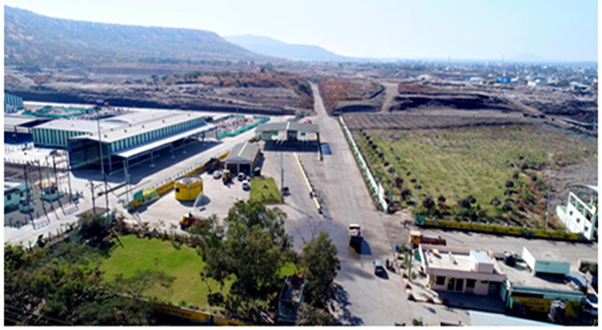
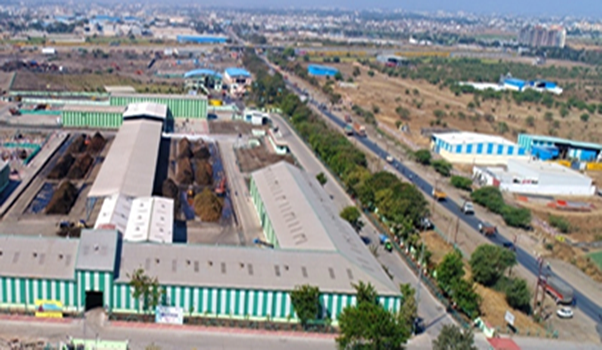
Windrow Composting.
Windrow composting is the production of compost by piling biodegradable waste, in long rows (windrows). This method is suited to producing large volumes of compost. These rows are regularly turned over to improve porosity/voids and oxygen content, mix in or remove moisture, and redistribute cooler and hotter portions of the pile. Windrow composting is a commonly used composting method. Windrow composting requires large tracts of land, equipment and labor to maintain and operate the facility. This method will yield significant amounts of compost, which might require assistance to market the end-product. This biological means of disposing that is composting can add much advantage to the ecosystem by conserving the plant nutrients. Composting of organic waste may reduce the environmental impact on climate change by 40–70% compared to land filling and incineration.
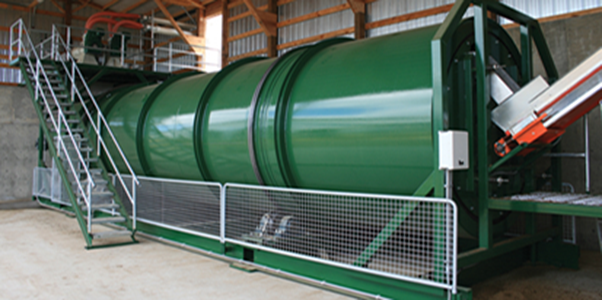
In-vessel Composting System
The feedstock is enclosed in a vessel that provides adequate mixing, aeration and moisture. The Vessel either rotates or is stationary, where a mixing mechanism moves the material around. All environmental conditions can be controlled to allow rapid composting. It requires further curing after the material has been discharged from the vessel. In-vessel methods rely on a variety of forced aeration and mechanical turning techniques to accelerate the composting process. In-vessel systems require the least amount of space of all composting systems, and can be installed inside a building. Successful invessel composting are available from 1 tpd to 10 TPD capacity. Multiple mach9ines may be installed for higher capacities.
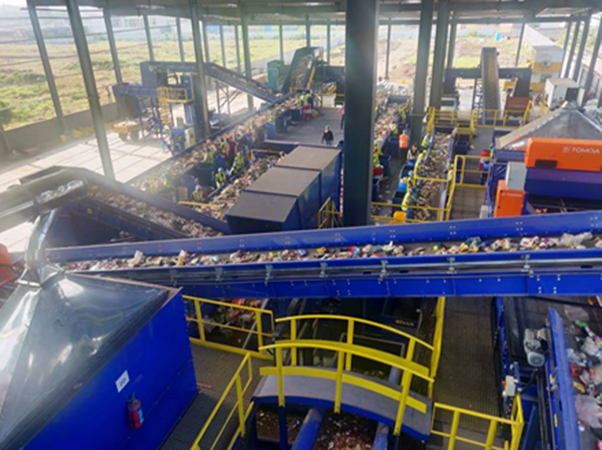
Fully Automatic Material Recovery Facility
Eco Pro Provide support for setting up of Fully Automated Material Recovery Facility including design of civil structures and setting up of complete plant. The main function of the MRF is to maximize the quantity of recyclables processed, while producing materials that will generate the highest possible revenues in the market. Automation has the advantages of reducing the health and safety risks. Machines can be adjusted to target new materials by just adding new sensors and can consequently take more from the waste streams. Fully mechanized Material Recovery Facility comprise of following machines:
- The Conveyor System and Screening.
- Density and Size separation (air classification) of waste.
- Ferrous and Non-ferrous Metals Separation.
- NIR sorting of waste.
- Robotic Waste sorting solution.
- Plastic, Paper, Carton, Glass, rubber, sole Separation.
- Size Reduction, Compactors and Balers.
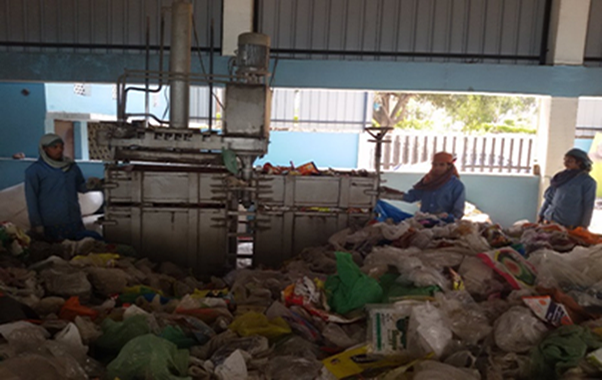
Semiautomatic Material Recovery Facility
Eco Pro Provide support for setting up of Material recovery facility including design of civil structures and appropriate machinery. MRF operations start with the registration, inspection, and placement of waste into the receiving area. Valuable recyclables, such as paper and carton, tin cans, metals, plastics, polyethylene and glass are separated manually for sale to recycling facilities. The recovered recyclables are weighed and temporarily stored in designated bins. The residual materials are temporarily stored and then disposed of in a sanitary landfill or used as refuse-derived fuel for waste-to-energy plants, where practicable. Semi- mechanized Material Recovery Facility comprise of following machines:
- Fatka Machine, for the removal of dust and moisture.
- Shredding and bundling Machine.
- Dana/Gatta making machine.
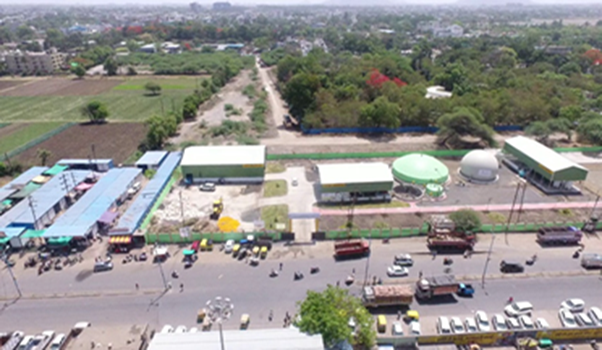
Biogas Plant with production of Bio- CNG for Transport
Under our consultancy it is unique initiative taken up by Indore Municipal Corporation to produce and utilize Bio CNG produced from processing of Municipal Solid Waste. The Bio methanation plant is anaerobic digestion process, which takes place in a closed airtight digester where organic raw materials are converted into biogas and digestate as products. Raw biogas is upgraded in a process which removes hydrogen sulphide, water, particles and CO2 present in the gas. Today, 15 buses in Indore are running on the Bio-CNG and consuming nearly 500 kg of gas per day & running more than 2000 km per day. This innovation is not only creating a cleaner world with green fuel but also rise life of citizens in the city. The innovation provides green and cheap energy & much needed organic fertilizer, is a true example of Circular Economy.
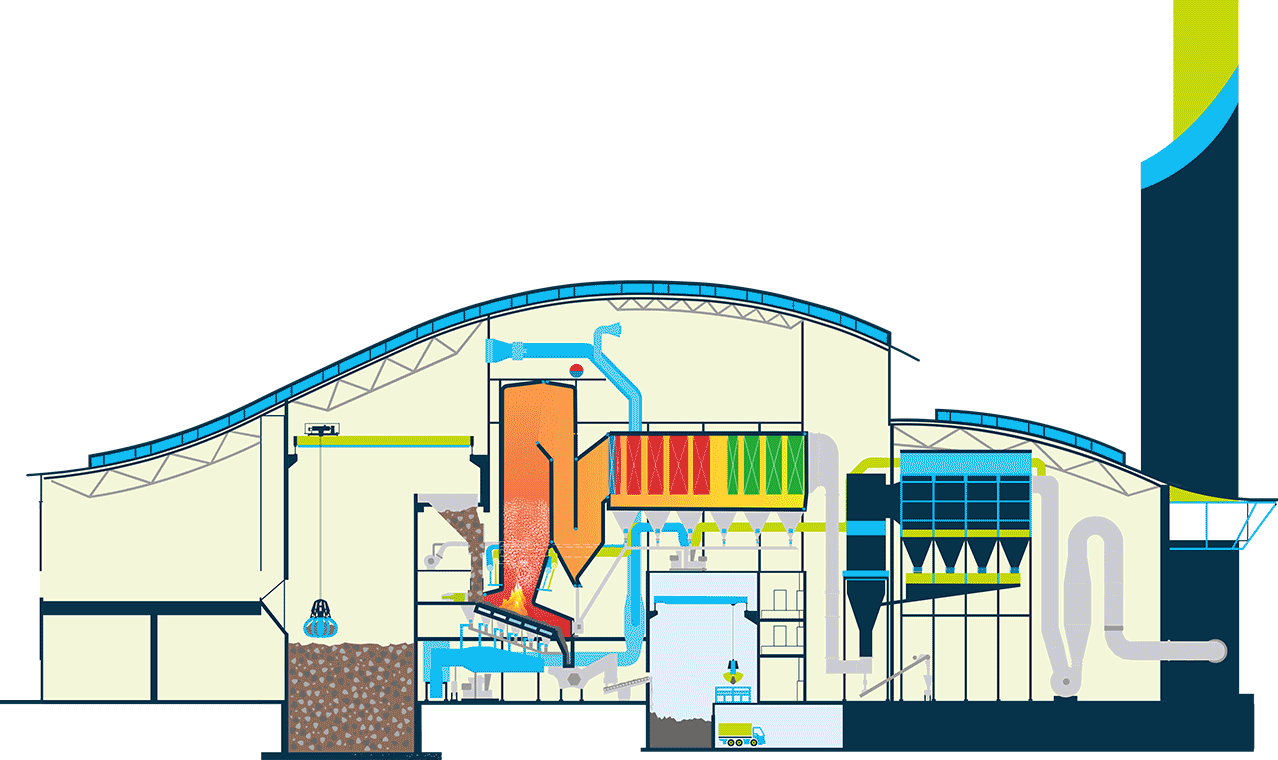
Waste to Energy
Waste to Energy refers to a family of technologies that treat waste to recover energy in the form of heat, electricity or alternative fuels such as biogas. These can include the production of cooking gas in household digesters from organic waste, collection of methane gas from landfills, thermal treatment of waste in utility size incineration plants, co-processing of Refuse Derived Fuel (RDF) in cement plants or gasification. WE provide consulting and technology tie up for large scale plants at the municipal level using the technologies of incineration, co-processing, anaerobic digestion, landfill gas collection and pyrolysis/gasification. Selection of appropriate technology is important as all these five technologies apply to different waste streams and have different functions and characteristics.
Eco Pro is leader in the management of municipal solid waste ensuring that it reaches a high level of performance in materials recovery and processing. We intend to create a circular economy that generates as little waste as possible and recycles and reuses wastes as resources, and utilize most advanced technologies and systems based on our experience and achievement may assist to preserve the environment and recycle resources on a global level. With the aim of preserving the environment in, we provide waste management and recycling technologies, which effectively turn waste into resources.
